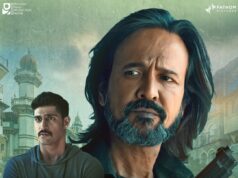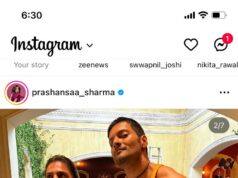In Amazon mini-TV’s short film 1800 Life, actor Divyenndu Sharma plays Vishal, a struggling stand-up comedian. He tells Firstpost how FTII trained him for parallel films but not for traditional Bollywood films in an interview. He found himself in a full-blown commercial movie scenario during his early days in film, so he had to unlearn a lot of stuff. He quickly realized that this was not what he desired. Mirzapur was the catalyst for a transformation in his life, and it was through this that he became involved in the OTT movement, which he saw as a merit-based and democratic platform.
The procedure is the same as before. Because you have less time to tell a tale, I would call it hard. The basic ingredient is the same as in a feature film, and the process is similar. A short film, on the other hand, is like a fast snack. What actors can do is turn it into a nutritious snack.
In a feature film, you have a lot of time for the character to grow and for a lot of side tales to come in, but this isn’t the case with short films due to the restricted amount of time you have to get your message through.
I made a number of short films in the beginning of my career, and we also did a few short films when I was studying at the Film and Television Institute of India (FTII). Acting in short films reminds me of being on a playground where you don’t have to worry about the rules of the game. All you have to do now is go out on set and express yourself. The only constraint is time. There is no need to consider a correct beginning, middle, or end. You have complete control over the narrative and cinematic language. When it comes to short films, there aren’t many commercial risks.
The component of the persona that I am portraying that is a stand-up comedian. It isn’t mentioned in the tale. It’s merely there in the story’s background. Any artist’s journey is remarkably similar. My character seeks approval from the audience, his family, and his peers. I can connect to the position as an artist. Because I have a tendency to doubt my own talents from time to time. I frequently wonder if I’m truly that talented, and what others think of me as an actress. I attempted to make my character as vulnerable and real as possible.
It’s been an interesting week. I began my career as a stage actress in Delhi before enrolling at FTII. I’d always seen myself as a member of those parallel films. Then, all of a sudden, my debut film, Pyar Ka Punchnama, became a commercial success. And I ended up in a full-fledged commercial setting. I worked with David Dhawan at the time, and I had to unlearn a lot of stuff since his cinematic language is so different from mine. After a few of films, I was quite lucky to achieve early success. But I realized that continuing to work in the same sort of commercial picture would limit me as an actor, and I wasn’t satisfied because I clearly wanted to show the world what I could accomplish.
You must unlearn all you learnt in film school once you join the Hindi film business. Thankfully, things have altered considerably. Going to film school is about more than just learning how to act. You graduate as a student of film. In film school, you learn the value of other departments such as an editor, a camera person, a director, and a writer, which helps you become a well-rounded artist who understands that each department contributes to the success of a production. There is a sense that everyone on set, not just the performer, is significant. A film school taught me the discipline of filming.







